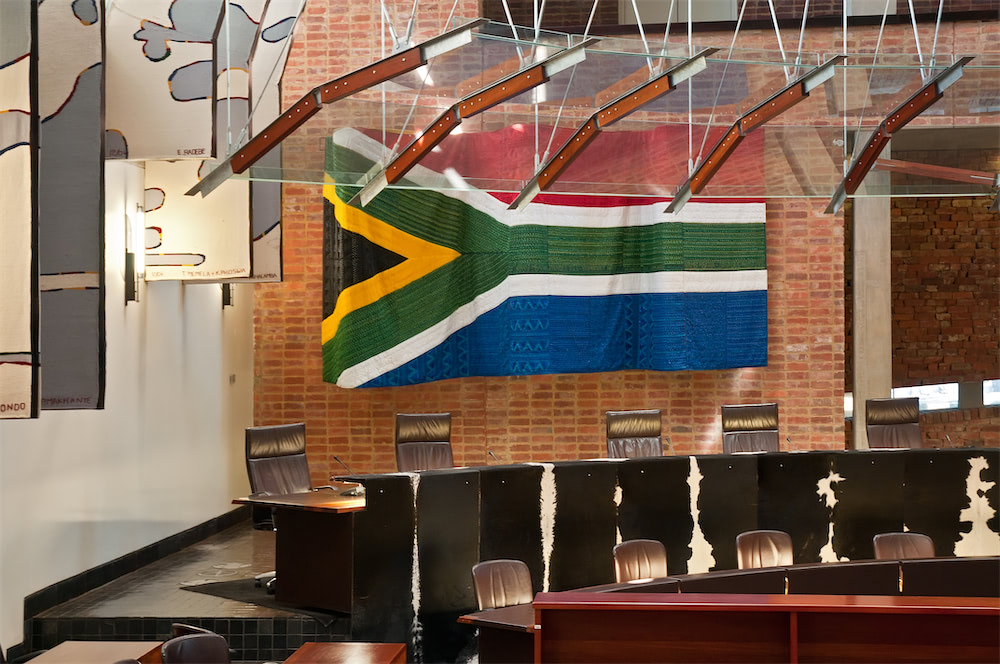

A Possible Evolution of the Marriages Act?
Marriage – the coming together of two souls. The joining together of two hearts.
It was Mark Twain who said -
“To get the full value of joy, you must have someone to divide it with.”
And sharing in life’s joy is what marriage should be about, at least in theory.
We all understand that marriage is not all sonnets and candle-lit dinners. There are legal commitments too. And yes, we all understand the general mechanics of marriage, at least legally—something we set out in our article In with The New.
But as a very brief refresher –
We know that there are essentially three matrimonial property regimes that apply to marriages regulated by the Marriages Act 25 of 1961 –
1. Married in community of property - a marriage in community of property happens automatically if a marriage contract is not entered into. This type of marital regime means that there is only one joint estate between the husband and wife, meaning that throughout their marriage, the couple will share – in equal parts – all the assets and all the liabilities of one another in what is known as a joint estate. Another way of putting this is as follows – spouses will share in all the risks and enjoy all the benefits of this common estate, i.e., each spouse will share (equally) in each other’s profits and losses accrued or incurred during the marriage.
2. Married out of community of property - being married out of community of property means exactly that. You do not fit into the community of property mould. You get to hold on to what you had before you decided to get married. To ensure this is the result, you need to specifically (and explicitly) state it as such. A couple will need to enter into a marriage contract stipulating – in no uncertain terms – the exclusion of the community of property regime.
Ø The accrual system - the word ‘accrual’ means an increase in the value of one party’s estate since the marriage date. Simply put – what you owned before you got married remains yours, but anything acquired during the marriage is now owned by both of you (or not, depending on whether the parties choose to include or exclude the accrual. As the description would suggest). It’s important to note that the right to share in accrual can only be done when a marriage is dissolved, i.e., upon divorce or death of one of the parties.
3. Married out of community of property without the accrual - if a couple is married out of community of property and still decides to exclude the accrual, then each spouse will have their own estate, which contains all property and all debts acquired prior to as well as during the marriage, meaning that at no time are any assets or liabilities shared between the parties. This has the practical consequence of each party’s estate at the commencement of the marriage being deemed as zero (nil). Upon dissolution of the marriage, either by death or divorce, each party to the marriage will retain their own individual assets and liabilities. Spouses who are married out of community of property have separate estates and are not liable for each other’s debts. Because no assets or liabilities, whether acquired before or during the marriage, are shared.
But what about the other marriages? Those of our same-sex partnership friends or our friends who are getting hitched according to customary law.
What about them?
There are other types of marriages.
Before we get into the other marriages, it’s important to note the following –
According to Section 9 of the Constitution, entitled "Equality", it states that:
"The state may not unfairly discriminate directly or indirectly against anyone on one or more grounds, including race, gender, sex, pregnancy, marital status, ethnic or social origin, colour, sexual orientation, age, disability, religion, conscience, belief, culture, language and birth."
This, therefore, means that discrimination against anyone based on their race, gender, marital status, culture, or sexual orientation is against the law.
This is important because while heterosexual couples have their marriages governed by The Marriages Act, Same Sex Marriages and Customary Marriages do not.
Same-Sex Marriages
South Africa was the fifth country in the world to legalise same-sex marriages in 2006, when the Civil Union Act No. 17 of 2006 (the “CUA”) came into force on 30 November 2006.
But this legalisation of same-sex marriages was (in fact) made possible by the Constitutional Court’s unanimous decision of Minister of Home Affairs v Fourie, which was handed down on 1 December 2005. This decision extended the common-law definition of marriage to include same-sex spouses—
“as the Constitution of South Africa guarantees equal protection before the law to all citizens regardless of sexual orientation”.
The CUA allows two people of any sex to be married or to enter into a civil partnership. Like any other civil marriage, a same-sex marriage or civil union must be solemnised by an authorised marriage officer in South Africa. Furthermore, the marriage must be registered through the Department of Home Affairs.
Same-sex partners have the same status as any heterosexual couple, including that of inheritance and end-of-life decision-making, being registered as a dependent on the other partner’s medical aid scheme, qualifying as a spouse in terms of the Intestate Succession Act, Act 81 of 1987, equal immigration rights and adoption rights.
The legal implications of a civil partnership made under the CUA are precisely the same as those under the Marriages Act.
In addition, the 2020 Civil Union Amendment Act, which was gazetted on Thursday, 22 October 2020, came into effect immediately. According to the CUA Amendment, marriage officers may no longer object to solemnising a civil union between persons of the same sex. The Act also requires the minister of Home Affairs to ensure that there is a marriage officer available to solemnise a civil union at every office of the Department of Home Affairs.
This amendment repealed Section 6 of the CUA, which previously provided that a marriage officer may, in writing, inform the Minister of Home Affairs that they object to solemnising a civil union or same-sex marriage based on moral grounds, religion and belief.
Customary Marriages
In South Africa, a customary marriage is understood as one that’s entered into in accordance with the traditions and customs of indigenous African customary law. Within a customary marriage, there can be more than two spouses, known as a polygamous marriage.
A customary marriage is governed by a number of different laws, among them are the Recognition of Customary Marriages Act 120 of 1998 (the “RCA”), the Matrimonial Property Act 88 of 1984, the customary law that applies to the spouses' cultures in particular as well as South African common law (which consists, inter alia, of rulings made by courts).
All customary marriages entered under the RCA (which came into force on 15 November 2000) were automatically deemed to be in a community of property (provided one of the spouses was not a partner in any other existing customary marriage). This resulted in spouses who were married in terms of Customary Law after the commencement of the Act enjoying the benefits (or disadvantages) of being married in community of property.
This rule of “in community of property” applied unless such consequences were explicitly excluded by the spouses who wanted to be married out of the community of property in terms of an ANC. Customary marriages were also required to be registered.
But there are – essentially - three acts dealing with the same thing!
And therein lies the problem.
Marriages are currently regulated by three different acts (as discussed above) –
1. the Marriage Act,
2. the Civil Union Act and
3. the Recognition of Customary Marriages Act.
And this is what the new Marriages Bill steps in – seeking to do away with all three and bringing them under one marriage banner.
The new Marriages Bill will seek to bring all marriages – whether traditional, a civil union or customary marriage - under one Act, fulfilling the aims of Section 9 of our Constitution.
It will regulate all marriages regardless of sexual orientation, gender, religious background, or cultural beliefs.
And that really does level the playing fields, truly bringing a rainbow nation together.
Another key feature of the new Marriages Bill (in Section 7) is the fact that it completely outlaws all marriages of children under the age of 18. In fact, Section 8 of the Bill sets out that persons wishing to enter into a marriage must -
Ø be 18 years or older on the date of the marriage,
Ø have given free and informed consent to be married, and
Ø have the legal capacity to enter the marriage.
There are also three additional points that should be highlighted -
Ø Section 9 of the Bill recognises polygamous marriages, but such marriages must still fulfil the same criteria as set out in Section 8 (age, free and informed consent, and legal capacity),
Ø Section 18 sets out that all marriages must be registered, and
Ø Section 19 states that all spouses in a marriage have, on the basis of equality and subject to the matrimonial property system governing the marriage, equal and full status and capacity to acquire assets and dispose of them, to enter into contracts and to litigate, in addition to any other rights they may have under any other law.
We can all readily admit that these changes will be highly welcomed – equality for absolutely everyone when it comes to marriage. Now there’s a novel idea, wouldn’t you say? About time too.
We will be looking into the new Divorce Bill in our next article. Look out for it!
In the meantime, if you have any questions on the information we have set out above or have a personal issue which you want to discuss with us, please don’t hesitate to contact us at NVDB Attorneys.
We are a law firm that considers honesty to be core to our business. We are a law firm that will provide you with clear advice and smart strategies - always keeping your best interests at heart!




